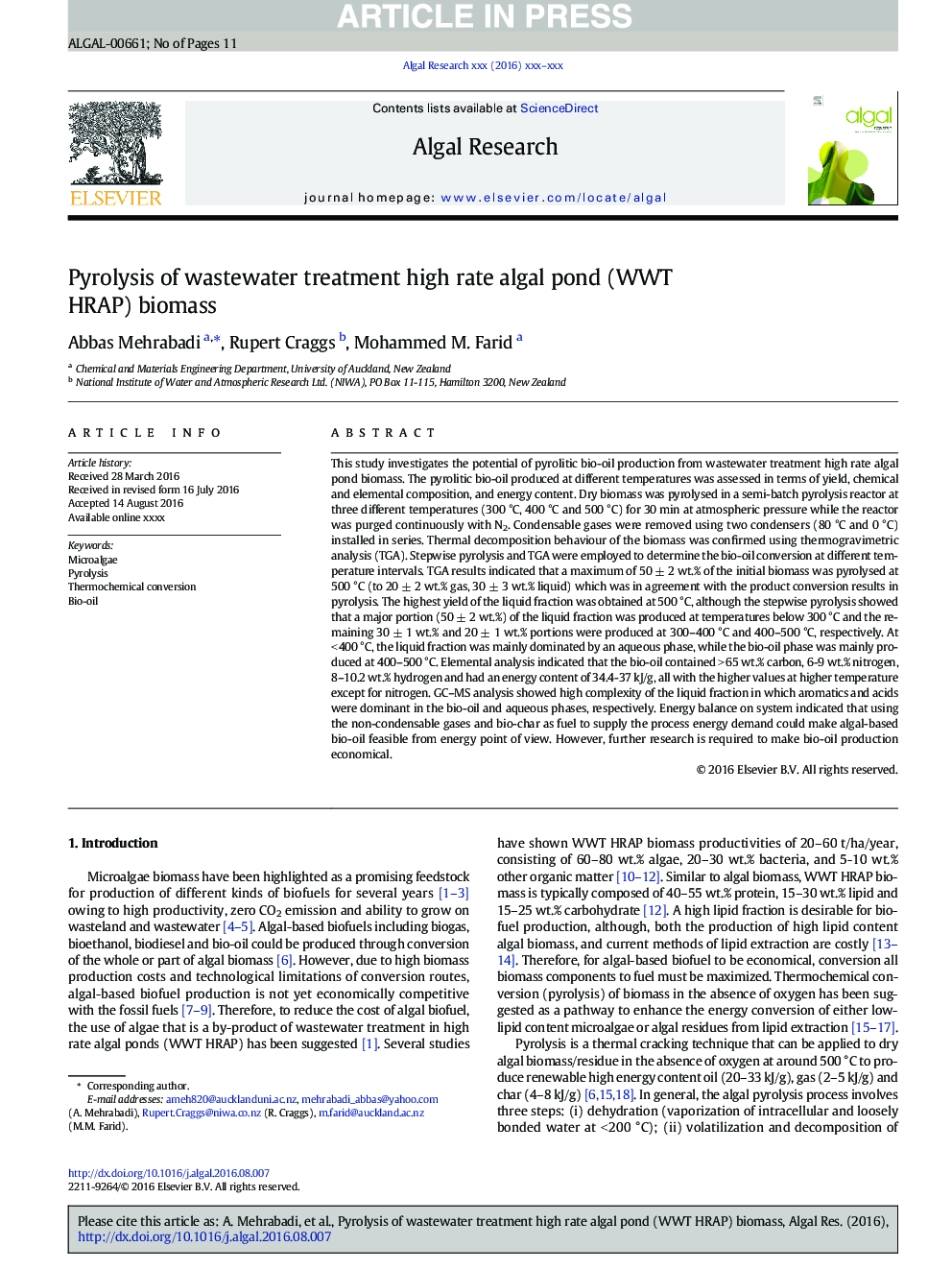| Article ID | Journal | Published Year | Pages | File Type |
|---|---|---|---|---|
| 5478258 | Algal Research | 2017 | 11 Pages |
Abstract
This study investigates the potential of pyrolitic bio-oil production from wastewater treatment high rate algal pond biomass. The pyrolitic bio-oil produced at different temperatures was assessed in terms of yield, chemical and elemental composition, and energy content. Dry biomass was pyrolysed in a semi-batch pyrolysis reactor at three different temperatures (300 °C, 400 °C and 500 °C) for 30 min at atmospheric pressure while the reactor was purged continuously with N2. Condensable gases were removed using two condensers (80 °C and 0 °C) installed in series. Thermal decomposition behaviour of the biomass was confirmed using thermogravimetric analysis (TGA). Stepwise pyrolysis and TGA were employed to determine the bio-oil conversion at different temperature intervals. TGA results indicated that a maximum of 50 ± 2 wt.% of the initial biomass was pyrolysed at 500 °C (to 20 ± 2 wt.% gas, 30 ± 3 wt.% liquid) which was in agreement with the product conversion results in pyrolysis. The highest yield of the liquid fraction was obtained at 500 °C, although the stepwise pyrolysis showed that a major portion (50 ± 2 wt.%) of the liquid fraction was produced at temperatures below 300 °C and the remaining 30 ± 1 wt.% and 20 ± 1 wt.% portions were produced at 300-400 °C and 400-500 °C, respectively. At < 400 °C, the liquid fraction was mainly dominated by an aqueous phase, while the bio-oil phase was mainly produced at 400-500 °C. Elemental analysis indicated that the bio-oil contained > 65 wt.% carbon, 6-9 wt.% nitrogen, 8-10.2 wt.% hydrogen and had an energy content of 34.4-37 kJ/g, all with the higher values at higher temperature except for nitrogen. GC-MS analysis showed high complexity of the liquid fraction in which aromatics and acids were dominant in the bio-oil and aqueous phases, respectively. Energy balance on system indicated that using the non-condensable gases and bio-char as fuel to supply the process energy demand could make algal-based bio-oil feasible from energy point of view. However, further research is required to make bio-oil production economical.
Related Topics
Physical Sciences and Engineering
Energy
Renewable Energy, Sustainability and the Environment
Authors
Abbas Mehrabadi, Rupert Craggs, Mohammed M. Farid,
